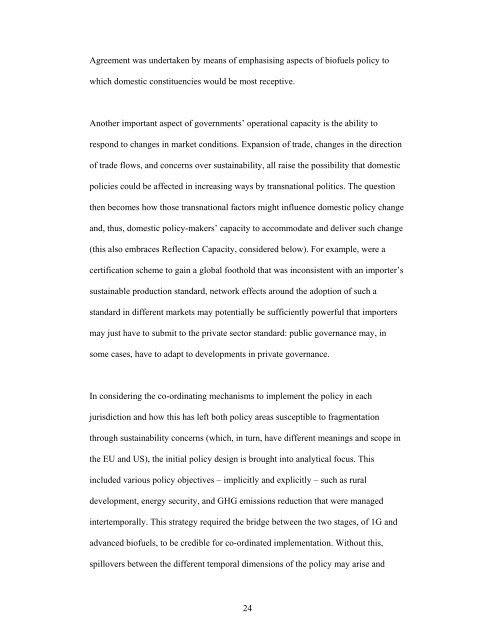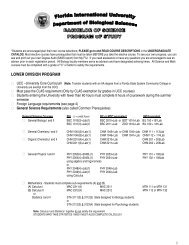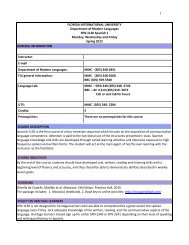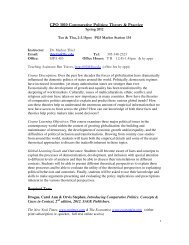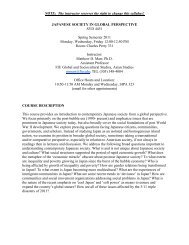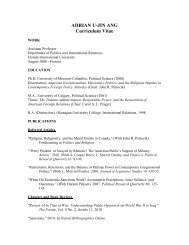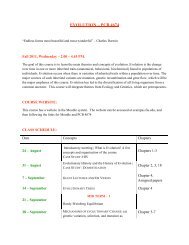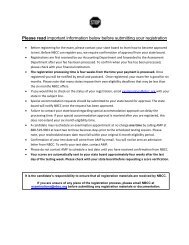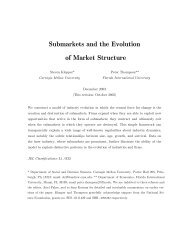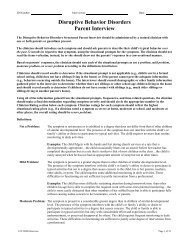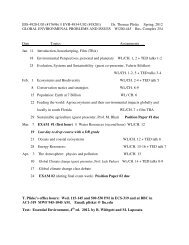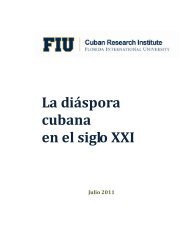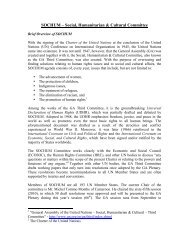Dr. Ackrill paper (*.pdf)
Dr. Ackrill paper (*.pdf)
Dr. Ackrill paper (*.pdf)
Create successful ePaper yourself
Turn your PDF publications into a flip-book with our unique Google optimized e-Paper software.
Agreement was undertaken by means of emphasising aspects of biofuels policy to<br />
which domestic constituencies would be most receptive.<br />
Another important aspect of governments’ operational capacity is the ability to<br />
respond to changes in market conditions. Expansion of trade, changes in the direction<br />
of trade flows, and concerns over sustainability, all raise the possibility that domestic<br />
policies could be affected in increasing ways by transnational politics. The question<br />
then becomes how those transnational factors might influence domestic policy change<br />
and, thus, domestic policy-makers’ capacity to accommodate and deliver such change<br />
(this also embraces Reflection Capacity, considered below). For example, were a<br />
certification scheme to gain a global foothold that was inconsistent with an importer’s<br />
sustainable production standard, network effects around the adoption of such a<br />
standard in different markets may potentially be sufficiently powerful that importers<br />
may just have to submit to the private sector standard: public governance may, in<br />
some cases, have to adapt to developments in private governance.<br />
In considering the co-ordinating mechanisms to implement the policy in each<br />
jurisdiction and how this has left both policy areas susceptible to fragmentation<br />
through sustainability concerns (which, in turn, have different meanings and scope in<br />
the EU and US), the initial policy design is brought into analytical focus. This<br />
included various policy objectives – implicitly and explicitly – such as rural<br />
development, energy security, and GHG emissions reduction that were managed<br />
intertemporally. This strategy required the bridge between the two stages, of 1G and<br />
advanced biofuels, to be credible for co-ordinated implementation. Without this,<br />
spillovers between the different temporal dimensions of the policy may arise and<br />
24


